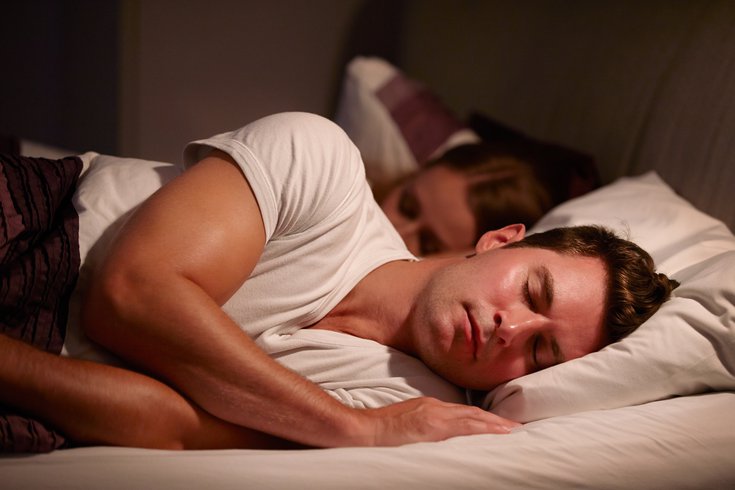
July 26, 2021
 Source/Image licensed from Ingram Image
Source/Image licensed from Ingram Image
Sleep specialists say the best way to reduce sleep talking episodes is to improve sleep hygiene.
Sleep talking – or somniloquy, a parasomnia disorder – is more common than many people might think.
Two-thirds of people will sleep talk at least once in their lives, according to one study that examined the prevalence of various sleep disorders. It is most common in children.
Sleep talking can take the forms of a string of gibberish, complete sentences and even a whole conversation, sleep specialists say.
"Some episodes of sleep talking can last 30 seconds and transpire only once in a blue moon while others report sleep talking for longer durations and more frequently within a sleep period," Rebecca Robbins, a sleep scientist at Brigham & Women's Hospital, told CNN.
In one linguistic study, about half of recorded sleep talking followed the normal rhythm of a conversation, including pauses for another person's response. There has been some evidence that sleep talking can be related to what people are dreaming about, but that connection isn't found in every episode.
Some people find themselves revealing secrets in their sleep without realizing it. Though sleep talking sometimes might lead to embarrassing questions from a bed partner in the morning, it is mostly a harmless condition, according to Michelle Drerup, a Cleveland Clinic psychologist.
But in some cases it might be a sign of a more serious health issue such as obstructive sleep apnea, REM sleep behavior disorder or post-traumatic stress order.
Sleep apnea is a disorder in which people experience irregular breathing patterns during sleep to the point that their breathing actually starts and stops throughout the night.
Obstructive sleep apnea is caused by the improper relaxation of muscles in the throat. It is a condition mostly diagnosed in adults, but studies have shown approximately 10% of school-aged children also have it. Obstructive sleep apnea is known to increase the risk of heart disease and other health issues.
Sleep talking also can be related to other parasomnias including sleepwalking and sleep terrors and affect the quality of sleep.
If sleep talking is keeping a bed partner up at night, it also can affect their sleep health, leading to fragmented sleep and insomnia.
The exact causes of sleep talking are not quite understood. It can occur during rapid eye movement and non-REM sleep, the Sleep Foundation explains, but the direct causes have yet to be found.
Some research has suggested that sleep talking could run in families and be more prevalent in people living with a mental health condition. Stress and caffeine consumption also can increase the likelihood of sleep talking.
Sleep specialists say the best way to reduce sleep talking episodes is to improve your sleep hygiene.
Try these tips from the Sleep Foundation and Cleveland Clinic:
1. Get at least seven hours of sleep every night
2. Manage stress levels
3. Limit caffeine and alcohol consumption
4. Exercise regularly
5. Unwind for at least a half hour before climbing into bed
6. Keep the bedroom temperature comfortable, between 60-67 degrees Fahrenheit
People who find themselves sleep talking in addition to having fragmented sleep and excessive daytime sleepiness are advised to consult with a sleep specialist.